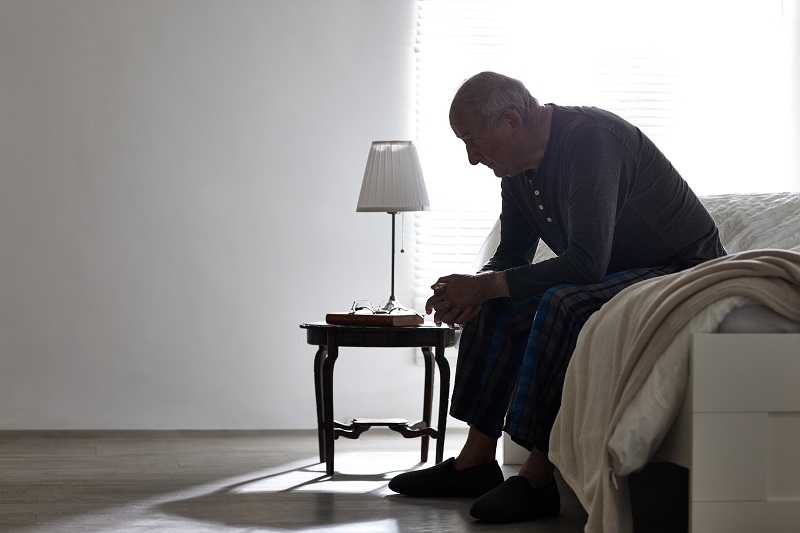Know these senior isolation facts

According to the 2016 Census, for the first time in recorded Canadian history, one-person households ranked the most common household type, surpassing households of couples with children.
This increase in solo living has raised the question of the possible impact of solo living on senior isolation and loneliness.
It is estimated that 30% of Canadian seniors are at risk of being socially isolated. This can be caused by the loss of a family member, poor health, disability, retirement, change of residence and lack of transportation.
Unfortunately senior isolation is on the rise. If you have a loved one who is a senior, here are the facts you need to know:
The numbers
- 1 in 4 seniors live with a mental health difficulty such as anxiety and depression
- 10 – 15% of seniors suffer from depression
- 50% of people over the age of 80 reported they felt lonely
- males over the age of 80 have the highest suicide rate out of all the age groups
Factors that increase the risk of social isolation and loneliness
- living alone
- being over the age of 80
- having compromised health/multiple chronic health problems
- having no children
- lacking contact with family
- lacking access to transportation
- living with a lower income
Risks associated with social isolation and loneliness
- depression
- suicide
- social anxiety
- loneliness
- alcoholism
- sedentary lifestyle
- not eating well
- higher chance of falls
- elder abuse
- financial abuse
Benefits of social support
- increase in self-esteem and confidence
- emotional support
- a sense of belonging and purpose
- health and safety checks
Social isolation prevention
- have phone calls with your loved one(s) regularly
- use technology such as video chat, instant messenger and social media profiles (Facebook, Instagram, etc.) to help the senior feel more socially connected
- suggest the senior in your life join classes at a local community centre
- spend quality time together by going on walks, cooking meals together, listening to music, watching television and running errands
If you are unable to spend time with your loved one on a regular basis, there are organizations such as Seniors for Seniors who can provide care to seniors. The senior companion drops in for an afternoon or overnight visit, depending on what the need is. The services range from personal and homemaking services, transportation, house cleaning to dropping in to play cards and keeping your loved one company. You will have peace of mind knowing that your loved one has someone to check up on them and give them the social support that they need.
Social support and being a part of a community may not be the magical cure to end senior isolation, but it is definitely an important part of your loved one’s health and well-being. Social participation among older adults is a large contributor to healthy aging. The senior in your life can live longer, healthier and happier if they have the regular social connections that they need.
Sources:
https://www150.statcan.gc.ca/n1/pub/75-006-x/2019001/article/00003-eng.htm
https://www.health.gov.bc.ca/library/publications/year/2004/Social_Isolation_Among_Seniors.pdf